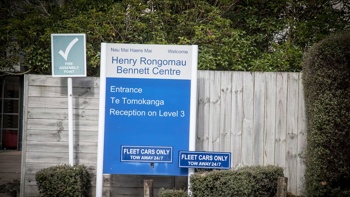
- Palmerston North Hospital’s HR head Keyur Anjaria told Indian nurses to stop using their language at work.
- The directive followed a patient complaint about feeling “disrespected” by nurses speaking Malayalam.
- Health New Zealand and the Health Minister later reversed similar language restrictions at Waikato and Christchurch hospitals.
News that a general manager at Palmerston North Hospital told Indian nurses that they must stop using their language in any public space at work has generated a huge response online, with New Zealanders sharing their own experiences of receiving care from migrant nurses and debating the controversial move.
RNZ reported that a patient’s complaint of being “disrespected” sparked the clampdown after an investigation last year.
A three-minute WhatsApp audio file from MidCentral Health head of HR Keyur Anjaria told members of the city’s Malayli community that for nurses anywhere in hospital public spaces, “talking in the local dialect is not allowed”.
This follows an incident where Waikato Hospital told nurses not to speak to patients in any language other than English last week, with a similar directive issued at Christchurch Hospital’s intensive care unit in April.
Health New Zealand initially defended the Waikato Hospital directive, telling RNZ that exclusive use of English in all clinical settings was safer, before the Health Minister and Health NZ’s chief executive stepped in to reverse the clampdown.

Palmerston North Hospital. Photo / NZME
‘Common courtesy’
One nurse told RNZ that affected nurses at the hospital had a mixed response to the directive – and that was echoed in responses online from Herald readers on Facebook.
Discussion online centred around whether speaking English in hospitals was a matter of “common courtesy”.
One strong thread was the belief that conversations that are unintelligible to the patient should not take place within earshot.
“A chat at the bedside of a patient is not a private conversation, and professional healthcare staff know to not have private discussions in the ward rooms. These are saved for the office or staff room,” another added.
“Patients have the right to understand every word that is being uttered in their presence – navigating hospital, doctors & nurses and ill health is bad enough,” another person wrote, before a contrary view was offered that patients “don’t have a right to dictate what is said between other staff that doesn’t concern them”.
Others questioned whether nurses would be allowed to speak to patients in their own language if the patients could speak it.
An NZ nurse who left the industry five years ago said that speaking another language with a patient was not dismissed or frowned upon, but was discouraged in front of patients or in shared spaces with other nurses.
“The reason being is that many nurses use it as an opportunity to gossip about the patient or other nurses, and when you’re outside of the discussion and can’t understand what is being said, it can foster a toxic workplace,” she said.
New Zealand has a diverse healthcare workforce. Photo / Janna Dixon
Many wrote about the struggles that older New Zealanders might have with foreign languages being spoken.
“I remember my very sick mum being upset because as they were washing her and looking after her the nurses spoke in their own language. She felt they were laughing at her, felt very upset,” one woman wrote.
But not everyone agreed.
“My mother, who is 92 and soon to be 93 (Irish-Pākehā), recently had a mini-stroke, causing her to fall and break her hip and a finger,” another woman revealed.
“Her care team, made up of people from every corner of the world, has been outstanding, and at no point was her care compromised. New Zealand needs to wake up...”
Support for migrant nurses
Many readers argued that our healthcare workforce relies on migrant workers and the ruling was discriminatory.
“We are very lucky to have nurses from the international community here to help our understaffed health service. We should be grateful to have them, not criticise their communication skills,” one person wrote.
“The racism in this country disgusts me, we are all immigrants here apart from the Māori population and should respect each others’ culture and acknowledge the significant contribution of those who are new to Aotearoa.”
“It’s crucial for the healthcare system to support these professionals, ensure fair opportunities, and create safe work environments where every nurse feels respected and valued,” another person offered.
Many claimed that the long delays faced by patients in emergency departments across the country were a much bigger issue than the language spoken by nurses.
Some were more directly opposed to the directive.
“Geez we’ve grown into a nation of whinging whining self-centered bigoted racists,” one said.
Others offered support to foreign-born nurses.
“Come on New Zealand, we really need to do better than this! A world full of different languages and cultures benefits us all! Nurses wanting to converse in their first language amongst themselves is a way to alleviate the pressure of being in a new country, working in a stressful job and just being themselves,” one person wrote.
“We don’t need to victimise this. Kia kaha to all our nurses who have arrived here recently to do this necessary work. You are truly amazing!”
- Additional reporting, RNZ
Take your Radio, Podcasts and Music with you









